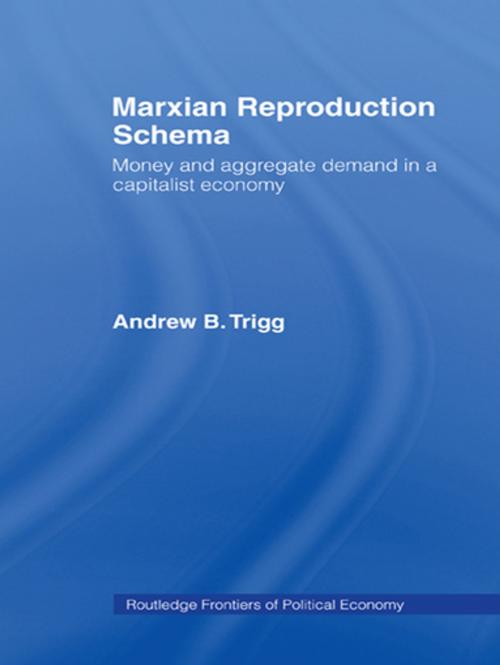Marxian Reproduction Schema
Money and Aggregate Demand in a Capitalist Economy
Business & Finance, Economics, Economic History| Author: | Andrew Trigg | ISBN: | 9781134305650 |
| Publisher: | Taylor and Francis | Publication: | April 18, 2006 |
| Imprint: | Routledge | Language: | English |
| Author: | Andrew Trigg |
| ISBN: | 9781134305650 |
| Publisher: | Taylor and Francis |
| Publication: | April 18, 2006 |
| Imprint: | Routledge |
| Language: | English |
In 1878 Karl Marx developed the reproduction schema: his model of how total capital is produced and reproduced. This is thought to be the first two-sector economic model ever constructed. Two key aspects of Marx’s writings are widely agreed to be undeveloped: The role of aggregate demand and the role of money. This book synthesizes various strands of economic thought to enable the reader to understand and clarify the structure of the reproduction schema. This synthesis will challenge prevailing orthodoxies.
This book constructs a macro monetary model which draws on a wide range of economic theories, within both the Marxian economic tradition, and the tradition of Keynes, Kalecki, Domar, Sraffa and Leontief. Marxian economics has been dominated by supply-side thinking, including general equilibrium theory and pronouncements about the shortage of surplus value, whilst Post Keynesians have failed to take seriously the importance of reproduction and the multisectoral structure of capitalism. By locating aggregate demand and the circuit of money in the reproduction schema, this key book provides an analytical contribution to both Marxian and Post Keynesian economics.
In 1878 Karl Marx developed the reproduction schema: his model of how total capital is produced and reproduced. This is thought to be the first two-sector economic model ever constructed. Two key aspects of Marx’s writings are widely agreed to be undeveloped: The role of aggregate demand and the role of money. This book synthesizes various strands of economic thought to enable the reader to understand and clarify the structure of the reproduction schema. This synthesis will challenge prevailing orthodoxies.
This book constructs a macro monetary model which draws on a wide range of economic theories, within both the Marxian economic tradition, and the tradition of Keynes, Kalecki, Domar, Sraffa and Leontief. Marxian economics has been dominated by supply-side thinking, including general equilibrium theory and pronouncements about the shortage of surplus value, whilst Post Keynesians have failed to take seriously the importance of reproduction and the multisectoral structure of capitalism. By locating aggregate demand and the circuit of money in the reproduction schema, this key book provides an analytical contribution to both Marxian and Post Keynesian economics.















